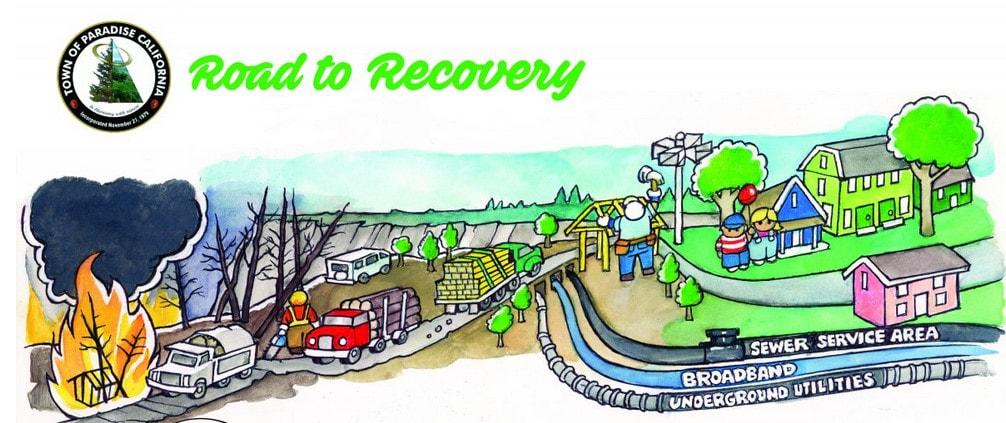chuckleheaded water projects
Eco 633 21 december 2021
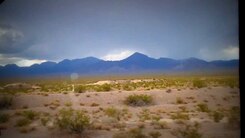
Our guest was Michael Hiltzik, who is business columnist at the Los Angeles Times. He pulls no punches in his writing, and received a Pulitzer Prize for a series on corruption and bribes in the music industry. We recently read an articles he wrote about the Cadiz water project in Southern California and a 2022 ballot effort called More Water Now. He is highly skeptical of both. Of Cadiz he wrote, "“Desperation over water scarcity has produced any number of schemes to relieve the crisis. But few are as chuckleheaded as a plan to pump groundwater from beneath the Mojave Desert and transport it 200 miles to urban Southern California.This is the Cadiz water project, which has been percolating since the turn of the century.” And of More Water Now, he wrote, that it is a ballot measure that “would make you pay for the ag industry’s water inefficiency.... a majestically cynical ploy being foisted on taxpayers by some of the state’s premiere water hogs.... [with] ecologically destructive and grossly uneconomical dams, reservoirs and desalination plants." A lively interview with implications for the NorthState as well as Southern California
Follow him at michaelhiltzik.com
Listen to or download the program.
Follow him at michaelhiltzik.com
Listen to or download the program.
CHICO CLIMATE COMMISSION
eCO 632 14 DECEMBER 2021
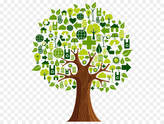
Our interviewees were Ann Bykerk-Kaufman and Brian Kress, newly appointed members to the Chico Climate Commission. They reviewed how members are selected and how the Commission functioned. We asked them about a range of topics that are included in Chico's Climate Action Plan: building, sustainable resources, transit, solar, bicycling, and more. We were impressed with their considerable knowledge about environmental topics and their commitment to making Chico a greener city.
Listen to or download the program
Read more about the work of the Commission: https://chico.ca.us/climate-action-commission
Listen to or download the program
Read more about the work of the Commission: https://chico.ca.us/climate-action-commission
civilizing the state
eco 631 30 november 2021
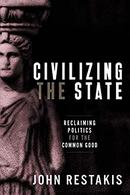
Our guest on the phone from Vancouver, British Columbia was John Restakis, author of a book from New Society titled Civilizing the State: Reclaiming Politics for the Common Good. He states flatly that politics “has been on life support for some time.” But he also says that we should "not pull the plug," and he provides a route to better government through democratic communalism, putting choices in the hands of community groups rather than politicians. He provided several examples of where these practices are under way, including Chenai, India; Barcelona, Spain; and Rojava, Syria. He and his book also offer many ideas about how we can implement communal democracy close to home. One place to learn more is the Synergia Institute, which he founded, that works toward "Co-operative CommonWealth: Transition in a Perilous Century." https://synergiainstitute.org/
Listen to or download the program.
Listen to or download the program.
california native plants
eco 630 23 November 2021
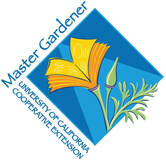
We interviewed Cindy Weiner, a Master Gardener here in Butte County. Steve recently attended a workshop she conducted at the Patrick Ranch Demonstration Center on the topic of California native plants. On the program, we asked her about the following:
--What is the definition/description of a “native” plant? Why do you prefer them to some of the annuals and perennials you can buy at commercial nurseries?
--How can you use natives to diversify your garden and attract more wildlife?
--What are some of your favorite native plants. What do they look like? How do you grow them? Can you just stick them in the ground and let them go? When is the best season for starting them? What other growing tips do you have to offer?
--Can one propagate more natives from the original? How is that accomplished?
--How many varieties do you have at the Patrick Ranch demonstration garden? When/how can the public get to see them? [Let’s also mention the demonstration garden at the Chico Creek Nature Center.]
--How and where can people find native plants for sale?
Listen to or download the program.
--What is the definition/description of a “native” plant? Why do you prefer them to some of the annuals and perennials you can buy at commercial nurseries?
--How can you use natives to diversify your garden and attract more wildlife?
--What are some of your favorite native plants. What do they look like? How do you grow them? Can you just stick them in the ground and let them go? When is the best season for starting them? What other growing tips do you have to offer?
--Can one propagate more natives from the original? How is that accomplished?
--How many varieties do you have at the Patrick Ranch demonstration garden? When/how can the public get to see them? [Let’s also mention the demonstration garden at the Chico Creek Nature Center.]
--How and where can people find native plants for sale?
Listen to or download the program.
We're all climate Hypocrites now
eco 629 16 november 2021
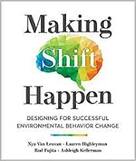
Our guest on this program was Sami Grover, who has written a book with the intriguing title, We’re All Climate Hypocrites Now, with the subtitle: How Embracing Our Limitations Can Unlock the Power of a Movement (New Society, 2021). He argues that too many "do-gooders" and "greeners" have been made to feel guilty about their less-than-perfect environmental behavior: We drive cars, we fly, we eat meat, and so on. He feels that the environmental movement has "lost its groove" by focusing overmuch on personal behavior and too little on the kinds of political actions that it took in the 1970s. Sami also notes that big business, especially the fossil fuel industry delights in feeding that guilt while
greenwashing its products. In the interview he suggests that personal actions do matter, but also need to be part of larger movements that lead to cultural and political change.
Listen to or download the interview.
Learn more about Sami Grover and his work.
greenwashing its products. In the interview he suggests that personal actions do matter, but also need to be part of larger movements that lead to cultural and political change.
Listen to or download the interview.
Learn more about Sami Grover and his work.
DEFENDING THE EDGE OF THE VALLEY
ECO 628 9 NOVEMBER 2021
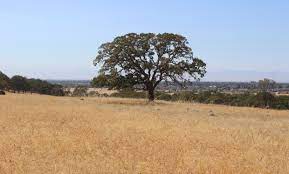
Our guests were Maggie Scarpa and Jared Geiser, both active in the Butte Environmental Council they are engaged in a fight to oppose an urban sprawl development called Valley's Edge in southwest Chico. It would occupy thousands of acres of pristine Oak Savanna (pictured at the left) and create a population of some 5000 people, larger than many NorCal towns. They reviewed the Environmental Impact Statement and offered their observations on why it is inadequate. Check out the Butte Environmental Council Website for updates and more details.
PLAGUES UPON THE EARTH
ECO 627 2 NOVEMBER 2021
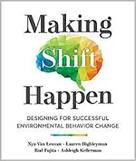
Our guest was Kyle Harper, Professor of Classics and Letters at Oklahoma University. He is a multidisciplinary historian and author of a new book, Plagues Upon the Earth: Disease and the Course of Human History (Princeton). His book is a comprehensive study of ancient and modern diseases and epidemics, and it challenges the traditional notion that civilization always brings about progress. A major theme of the book is that “progress” often has its price in the form of the spread of disease, including pandemics. Among the links to disease that have also brought about human progress, according to Kyle, are fire, farms, frontiers, and fossil fuels.
Listen to or download the interview.
For more about Kyle and the book, click here.
Listen to or download the interview.
For more about Kyle and the book, click here.
chico climate action commission
eco 626 13 october 2021
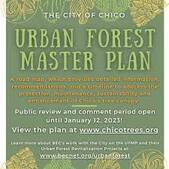
Our guest was Cherie Chastain, Chair of the Chico Climate Action Commission. First we discussed a recent (failed) effort on the part of Chico's conservative City Council to downgrade this group from a commission to a committee. We rejoiced that in the end, the Council declined to proceed, which gives the Commission more cloud. Cherie then reviewed the many projects underway in Chico and discussed how the commission is likely to proceed in the future.
Listen to or download the recording.
Learn more about the Commission.
Study the Chico Climate Action Plan.
the dreamt land: redux
28 september 2021
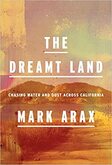
This program was a replay of our interview with Mark Arax, author of The Dreamt Land: Chasing Water and Dust Across California. Mark Arax is from a family of Central Valley farmers, a writer with deep ties to the land who has watched the battles over water intensify even as California lurches from drought to flood and back again. In The Dreamt Land, he travels the state to explore the one-of-a-kind distribution system, built in the 1940s, '50s and '60s, that is straining to keep up with California's relentless growth.
The Dreamt Land weaves reportage, history and memoir to confront the "Golden State" myth in riveting fashion. No other chronicler of the West has so deeply delved into the empires of agriculture that drink so much of the water. The nation's biggest farmers—the nut king, grape king and citrus queen—tell their story here for the first time.
Arax, the native son, is persistent and tough as he treks from desert to delta, mountain to valley. What he finds is hard earned, awe-inspiring, tragic and revelatory. In the end, his compassion for the land becomes an elegy to the dream that created California and now threatens to undo it.
Listen to or download the program: Click Here.
The Dreamt Land weaves reportage, history and memoir to confront the "Golden State" myth in riveting fashion. No other chronicler of the West has so deeply delved into the empires of agriculture that drink so much of the water. The nation's biggest farmers—the nut king, grape king and citrus queen—tell their story here for the first time.
Arax, the native son, is persistent and tough as he treks from desert to delta, mountain to valley. What he finds is hard earned, awe-inspiring, tragic and revelatory. In the end, his compassion for the land becomes an elegy to the dream that created California and now threatens to undo it.
Listen to or download the program: Click Here.
disappearing places
eco 623 21 september 2021
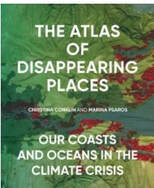
On this program we learned about places around the world where oceans and coasts are threatened, from Hawaii to Bangladesh, from Kenya to Antarctica, from Peru to London. Our guest was Christina Conklin, who co-authored The Atlas of Disappearing Places with Marina Psaros (The New Press). In addition to co-writing the text, Christina also did maps and illustrations for the book using a highly unusual artistic process, where she dried kelp from the sea and used water soluble inks to create amazing maps and charts, one of which is pictured below. Divided into four main sections--chemistry, storms, warming waters, and rising seas--the book describes environmental challenges and offers scenarios for the year 2050 that depend on people taking dramatic action. A key term in the book is “transilience,” which includes “resilience” with an emphasis on transformative change.
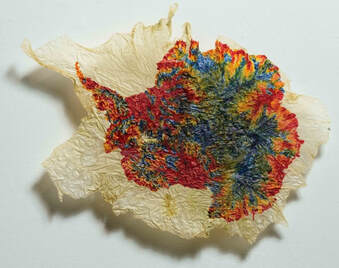
Christina is an artist, writer, and researcher whose work investigates the intersection of natural systems and belief systems, often using the ocean as both site and metaphor. She holds an MFA from California College of the Arts and has exhibited internationally. She lives in Half Moon Bay. [Pictured right: Alaska]
She is also active in the Global Regenerative Colab, which is discussing and acting on ways to bring about the change that is needed.
Learn more about her work and the book.
Listen to or download the interview.
She is also active in the Global Regenerative Colab, which is discussing and acting on ways to bring about the change that is needed.
Learn more about her work and the book.
Listen to or download the interview.
in the struggle
eco 622 14 september 2021
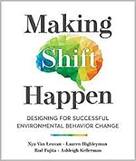
Our guests were are the authors of a new book titled In the Struggle: Scholars and the Fight Against Industrial Agribusiness in California. The authors tell the stories of eight scholar/activists from the early twentieth century to today and how those people have used their studies to fight agribusiness. There are many grim stories about how various groups have fought to suppress this work, including big ag, politicians, the media, and even universities.
Among the topics we discussed is Westland Water District's acre-per-vote constitution which, as Dan and Scott say, “undermines democratic principles,” an especially relevant topic as Butte County activists fight the Tuscan Water District proposal.
Scott Peters is a professor in the Department of Global Development at Cornell University and former co-director of a national consortium of over 100 colleges and universities, called Imagining America: Artists and Scholars in Public Life.
Dan O’Connell is Executive Director of the Central Valley Partnership, which is a network of unions, environmental organizations, and community groups in the San Joaquin Valley.
Both are deeply committed to moving research out of the ivory tower and into the communities of our world. Listen to or download the program.
Among the topics we discussed is Westland Water District's acre-per-vote constitution which, as Dan and Scott say, “undermines democratic principles,” an especially relevant topic as Butte County activists fight the Tuscan Water District proposal.
Scott Peters is a professor in the Department of Global Development at Cornell University and former co-director of a national consortium of over 100 colleges and universities, called Imagining America: Artists and Scholars in Public Life.
Dan O’Connell is Executive Director of the Central Valley Partnership, which is a network of unions, environmental organizations, and community groups in the San Joaquin Valley.
Both are deeply committed to moving research out of the ivory tower and into the communities of our world. Listen to or download the program.
disasterology
eco 621 7 september 2021
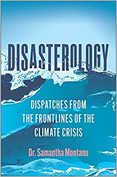
Our topic in this program was one that is frighteningly relevant, from the NorthState to the entire world. Our guest was Dr. Samantha Montano, whose new book is titled Disasterology: Dispatches from the Front Lines of the Climate Crisis (Park Row). She teaches in the Emergency Management Department at the Massachusetts Maritime Academy and has traveled widely studying disasters: how they happen, how people respond to them, and how we can better prepare for increasing disasters due to climate change.
During the interview, we discussed her experiences helping recovery in New Orleans from Hurricane Katrina when she was a 16-year-old high school student and how this led to her career in emergency recovery. She compared the effects of Katrina to those of Ida, both in New Orleans and on the East Coast, suggesting ways in which preparedness needs to be improved for future disasters.
She also spoke about social justice and how people of color and poverty are most affected by disasters (and during recovery), and gave us insights in to U.S. response to Covid and fires and offered ideas on how federal agencies need to be restructured to improve disaster response. Lastly, she indicated how people can advocate for more effective disaster response in their communities. Learn more about the book at http://www.disaster-ology.com/.
Listen to or download the interview: click here.
During the interview, we discussed her experiences helping recovery in New Orleans from Hurricane Katrina when she was a 16-year-old high school student and how this led to her career in emergency recovery. She compared the effects of Katrina to those of Ida, both in New Orleans and on the East Coast, suggesting ways in which preparedness needs to be improved for future disasters.
She also spoke about social justice and how people of color and poverty are most affected by disasters (and during recovery), and gave us insights in to U.S. response to Covid and fires and offered ideas on how federal agencies need to be restructured to improve disaster response. Lastly, she indicated how people can advocate for more effective disaster response in their communities. Learn more about the book at http://www.disaster-ology.com/.
Listen to or download the interview: click here.
tuscan aquifer--just say no
eco 620 31 august 2001
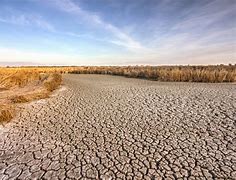
Our guests on this program were Aimee Raymond and Paul Behr, who spoke in opposition to the proposed Tuscan Water District which is going through the approval process. Both are former members of the Rock Creek Reclamation district and are deeply committed to protecting water in the Tuscan aquifer. They pointed out that the proposed district is controlled democratically on a vote-per-acre process (likely unconstitutional) and that the district would be an end run around the state mandated Sustainable Groundwater Management Act. They urged listeners to participate in coming hearings before the Water Commission, the Local Agency Formation Commission (LAFCo), and the County Supervisors. For more details go to the website of Butte Water Watch. Listen to the program: click here.
AG TO THE RESCUE
ECO 618 24 AUGUST 2021
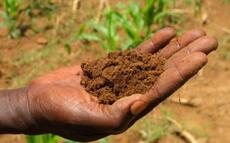
Julie Heath is a retired scientist who admits to developing a low-grade addiction to agricultural webinars and podcasts. She's been carefully studying some of the ways that agriculture can reduce C02 emissions and help to sequester carbon. Julie was on our program on July 20, but we found there was much more to consider. She spoke about both the science and practicality of putting ag (including big and small farmers) to work reducing C02 in the atmosphere. She has practical ways that, on scale, could help to un-desertify California! You can access her script here. Click to Listen to the program. And more info about the topic is at http://sites.google.com/view/-healthy-soils-healthy-healthy-humans-healthy climate.
LOST AND FOUND IN THE PARK
ECO 617 17 AUGUST 2021
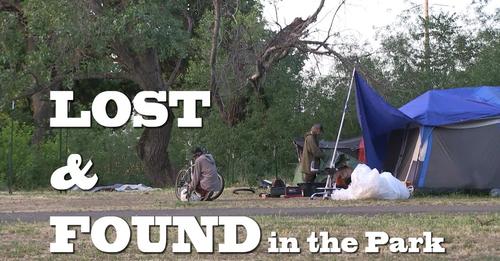
Our guests were Stacey Wear and Gerard Ungerman, founders of Respectful Revolution, which produces videos of community action and activist focused on peaceful, effective ways of creating change. In addition to traveling around the country to talk with and film people, they have produced a film, "Lost and Found in the Park: Finding Community in Chico's Homeless Tent Camps." Produced in association with the Chico Housing Action Team, the film compassionately explores some of the myths and truths about homelessness in a way that could fruitfully move some of the conversations along. Gerard and Stacey bicycled with their camping gear to Comanche Creek and Teichert and spent a few days at each location to gain houseless people's trust and to let them tell their stories and what they want for themselves. See this powerful film on YouTube and learn more at respectfulrevolution.org. Listen to program; click on the link below.
|
|
FREE, FAIR, AND ALIVE: EXPLORING THE "COMMONS"
ECO 616 10 AUGUST 2021
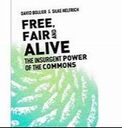
Our topic on this program was the commons, a term once used to describe commonly owned land where livestock could graze.David Bollier applies the word to a whole new way of thinking about community issues and problems. He is the author (with Silfe Helfrich) of Free, Fair, and Alive: The Insurgent Power of the Commons (New Society: 2019). He is Director of the Reinventing the Commons Program at the Schumacher Center for New Economics. David described the historical concept of the commons and its evolution to "living social systems through which people address their shared problems in self-organized ways, using such strategies as ritualizing, gentle reciprocity, trust-situated knowing, communion with nature, preserving relationships and peer governance.
Learn more at:
www.bollier.org
centerforneweconomics.org
commonsstrategies.org
Listen to or download the program.
Learn more at:
www.bollier.org
centerforneweconomics.org
commonsstrategies.org
Listen to or download the program.
THE WEB OF MEANING
ECO 615 3 AUGUST 2021
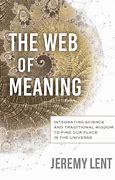
In this program, we interviewed Jeremy Lent, author of a book from New Society entitled, The Web of Meaning: Integrating Science and Traditional Wisdom to Find Our Place in the Universe. Jeremy has his educational roots at Cambridge and the University of Chico, and is Director of the Liology Institute in Berkeley. The title and subtitle of the book gave us the structure for the interview and we asked him about the concept of the web of meaning (relating to The Patterning Instinct, the topic of an earlier book), how science can guide our understanding, and the rediscovery of traditional wisdom. His book calls for an "integrated intelligence" as a way of, if not solviing, at least taking action on myriad problems, including our current, rather tangled and vitriolic, web of meaning. Listen to or download the program. Check out the Liology Institute and Jeremy's work at liology.org.
THE CHICO GENERAL PLAN UPDATE: hOUSING
ECO 614 26 JULY 2021

Our guests were Brendan Vieg Director of Community Development for the City of Chico and Marie Demers, Housing Manager in the Community Development Department. They filled us in on the process of updating the City's general plan, specifically the housing element. They explained why the General Plan is required by the state, how it functions in community planning, and how it guides construction of new housing for the City. Particular interesting was the discussion of "affordable" housing: what it means, how developers are engaged in creating new housing, and who qualifies to live in it. We found this to be a very articulate and informative discussion of housing issues and problems and the City's efforts to respond to them.
For more information on the general plan, click here: https://chico.ca.us/general-plan-other-planning-documents
Listen to or download the program: Click here.
For more information on the general plan, click here: https://chico.ca.us/general-plan-other-planning-documents
Listen to or download the program: Click here.
citizens' climate lobby and sustainable ag
eco 613 19 july 2021
In this program, we spoke with Gordon Gregory and Julie Heath about two closely related topics: climate change and sustainable agriculture.

Gordon is a former newspaper reporter who worked in Montana and Oregon covering the environmental and natural resources. He helped launch the Chico Chapter of Citizens' Climate Lobby and teaches courses with the Osher Lifelong Learning Institute and in communities nearby on climate change as well as the connection between climate change and wildfires.
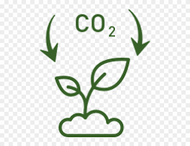
Julie is a scientist who retired to Chico seven years ago after a career in medicinl chemistry research. She told us abouot why she believes agriculture can literally save the planet by removing excess carbon from the atmosphere. She is involved in Citizen's Climate Lobby as a co-group leader, focusing on food, agriculture, and the climate.
Listen to the interview: Click here.
For more information on Citizen's Climate Lobby: click here.
Listen to the interview: Click here.
For more information on Citizen's Climate Lobby: click here.
NORTH STATE SHELTER TEAM
ECO 612 12 JULY 2021
Our guest was Charles Withuhn, longtime Chico activist with the Peace Center, the Chico Housing Action Team, and many other community service organizations. Charles told us about his new group, the North State Shelter Team, that is working to fill some of the gaps in other homeless services. He spoke articulately and passionately about the City's failure to serve the homeless, including inadequate response to a court order, and outlined what he sees as an equitable solution, which would include four to seven small campsites within city limits, with adequate accommodations. He cited numerous examples of other cities that have tried this approach, along with housing for all, projects such as the Chico Housing Action Team's residential program, and more.
Click here to listen to or download the interview.
Click here to listen to or download the interview.
FOLLOWING THE SEASONS
ECO 611 5 JULY 2021
Our guest on this phone was Dallas Hartwig, author of a book titled, The 4 Season Solution: The Groundbreaking New Plan for Feeling Better, Living Well, and Powering Down Our Always-On Lives. It's published by Atria Books, an imprint of Simon and Schuster, Dallas Hartwig is a functional medicine practitioner and physical therapist. He has authored books describing healthier living (especially through food choices); he’s also the cohost of The Living Experiment podcast and the author of an email newsletter on healthy living. He has been featured in media such as Today, Good Morning America, The Dr. Oz Show, The View, and more. He writes: “Not long ago, our ancestors lived according to the changing seasons, adjusting how they slept, ate, moved, and even socialized throughout the year. But today, we are more disconnected from the natural world than ever. We wake before the sun rises and go to bed long after it sets. We eat tropical fruits in the dead of winter. We exercise in climate-controlled environments. We connect virtually instead of emotionally. Our lives are frenetic, stressful, and exhausting. In other words, we are living in a chronic summer, and it’s killing us.” His 4-Season solution focuses on experiencing the seasons both literally and metaphorically to change our sleeping, eating, exercising, and social habits
Listen to or download the program.
Listen to or download the program.
I'M RIGHT AND YOU'RE AN IDIOT
ECO 609 22 JUNE 2021
Several years ago, we interviewed this week's guest, Jim Hoggan, about his book titled, "I'm Right and You're and Idiot: The Toxic State of Public Discourse and How to Clean It Up." We have referred to that interview more than any other Ecotopia program since then, and we've even had a couple of heated debates with each other over some of its statements and theories. A second edition, post-the-Trump election, is coming out shortly, and we were eager to hear what's new in this edition. Jim is president of the PR firm Hoggan & Associates and chair of the David Suzuki Foundation board. He founded the influential website DeSmog Blog to expose misinformation campaigns that pollute public debate around climate change and the environment. In this interview, he spoke about current toxicity of discourse but also about propaganda, which he generally sees in a negative light, and which has been around a long time. His solutions generally focus on creating more compassion for our opponents and seeking common ground. there was too much in this interview to summarize: Listen to the show recording, and even better, buy the book, which includes wisdom of over sixty people whom Jim interviewed. Learn more at http://www.imrightandyoureanidiot.com/
Listen or download: Click here. https://ln4.sync.com/dl/b8954ab00/u79ycdrs-9duk3p7b-56t93r8q-fdcvuwmj
Listen or download: Click here. https://ln4.sync.com/dl/b8954ab00/u79ycdrs-9duk3p7b-56t93r8q-fdcvuwmj
THE DARK SIDE OF ELECTRIC CARS: LITHIUM MINING IN NEVADA
ECO 608 15 JUNE 2021
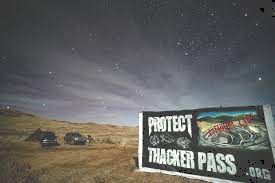
This evening we will spoke about the “Dark Side of Electric Cars.” The mining of lithium and cobalt, the major components of rechargable batteries, including those used in electric cars, has consequences for the land, the environment, and the people who live on the land being mined.
We focused on a specific mine, approved the first of this year at Thacker Pass, Nevada. We spoke first with Dr. David von Seggern, a retired seismologist from the Nevada Seismological Laboratory at the U. of Nevada, and a former chair of the Toiyabe Chapter of the Sierra Club in Nevada. He closely follows conservation and environment issues in Nevada.
Then Susan had a report from a rally from an event that took place on Saturday, June 12, at the city plaza in Reno, NV. “Protect Peehee Mu huh” or Thacker Pass is sacred to the Northern Paiute and Western Shoshone indigenous people. This event was intended to build support for the resistance to the building of the Thacker Pass lithium mine. She recorded both comments and original music from the rally.
Susan ended the report with a brief editorial comment:
Any person listening to this program about lithium mining might sensibly ask, “Then what can we do? Damned if we do. Damned if we don’t.” I think my answer is just to be mindful. All of us that consume are a part of the problem of the degradation of the earth. And the more we consume, the more we are part of the problem. As I used to tell my children, “You’re complicit when you wake up in the morning.” All of us are complicit. And know when you and I are consuming, someone is probably being hurt by that. It’s the nature of living in a world, in a country, that has promoted growth, consumerism and a car-centric culture.
Listen to or download this program: click here.
We focused on a specific mine, approved the first of this year at Thacker Pass, Nevada. We spoke first with Dr. David von Seggern, a retired seismologist from the Nevada Seismological Laboratory at the U. of Nevada, and a former chair of the Toiyabe Chapter of the Sierra Club in Nevada. He closely follows conservation and environment issues in Nevada.
Then Susan had a report from a rally from an event that took place on Saturday, June 12, at the city plaza in Reno, NV. “Protect Peehee Mu huh” or Thacker Pass is sacred to the Northern Paiute and Western Shoshone indigenous people. This event was intended to build support for the resistance to the building of the Thacker Pass lithium mine. She recorded both comments and original music from the rally.
Susan ended the report with a brief editorial comment:
Any person listening to this program about lithium mining might sensibly ask, “Then what can we do? Damned if we do. Damned if we don’t.” I think my answer is just to be mindful. All of us that consume are a part of the problem of the degradation of the earth. And the more we consume, the more we are part of the problem. As I used to tell my children, “You’re complicit when you wake up in the morning.” All of us are complicit. And know when you and I are consuming, someone is probably being hurt by that. It’s the nature of living in a world, in a country, that has promoted growth, consumerism and a car-centric culture.
Listen to or download this program: click here.
BUTTE FIRESAFE COUNCIL
ECO 607 8 JUNE 2021
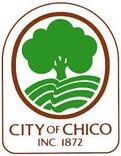
In this program, we spoke with Calli-Jane DeAnda, the Executive Director of the Butte FireSafe Council. She told us about the remarkable range of programs being conducted by the Council as well as some of its coming events. Among the topics we discussed were the history and composition of the Council and such projects as forest health, prescribed burns, the chipper project, Adopt-a-Forest, and the relationship of the Council to CalFire and other regional organizations. You can learn more about the FireSafe Council and volunteer or contribute at buttefiresafe.net. Click to: Listen to or download the program.
saving the monarchs
eco 606 1 june 2021

On this program, we had two interviews discussing the drastic reductions of Monarch Butterfly populations in California and around the world. But first, we briefly discussed the butterfly effect, which actually has nothing to do with the Monarchs, but is an important reminder of what the demise of a single species can mean.
The term is closely associated with the work of mathematician and meteorologist Edward Lorenz. He noted, metaphorically, that the details of a tornado (the exact time of formation, the exact path taken) can be influenced by minor perturbations such as a distant butterfly flapping its wings several weeks earlier.
We live in a cause and effect world, though linking causes with distant effects is so complex as to be, in many cases, impossible. But we can ask some pretty clear causal effects when it comes too the Monarchs? What is causing their decline and possible extinction? And equally important, what may be the effects on our world if a lovely butterfly disappears? Does it matter?
The term is closely associated with the work of mathematician and meteorologist Edward Lorenz. He noted, metaphorically, that the details of a tornado (the exact time of formation, the exact path taken) can be influenced by minor perturbations such as a distant butterfly flapping its wings several weeks earlier.
We live in a cause and effect world, though linking causes with distant effects is so complex as to be, in many cases, impossible. But we can ask some pretty clear causal effects when it comes too the Monarchs? What is causing their decline and possible extinction? And equally important, what may be the effects on our world if a lovely butterfly disappears? Does it matter?

In our first interview tonight we’ll talk with students, Sam Sims, and Aubrey Burdette and two community members, Heather McCafferety and Chloe Adams, from Wildflower Open Classroom Charter School in Chico who decided that helping the Monarchs is worth planting a butterfly garden. They discussed why the Monarchs are endangered and shared the experience of creating a milkweed garden in the school playground.
Listen to the Interview.. Learn more about Wildflower Open Classroom Charter School.
Listen to the Interview.. Learn more about Wildflower Open Classroom Charter School.

Then we spoke with Claire Pavelka of River Partners. which is planting over 600 acres of milkweed around California to restore Monarch populations. She explained the Monarch lifecycle and migration patterns and how milkweed fits into the pattern. Claire also discussed some of their other projects, including watershed and wetlands restoration.We found this to be an especially interesting and informative interview. Listen or download. Learn more about River Partners.
REGENERATING PARADISE
ECO 605 25 MAY 2021

In this program we spoke with Allen Myers, who is Executive Director of Regenerating Paradise, a grassroots community group in Paradise which has been active in bringing together the whole community to create concrete projects for rebuilding Paradise better. He was away during the Camp Fire, but then returned to his home town to create this amazing organization. He described a number of projects, too many to list here (check the website). He also read to us an inspiring statement about the aims of the organization: “Our main focus is being a weaver, a holder of a holistic vision of health for our ridge community.” A fountain of hope and optimism, he wrote in a recent newsletter: “Spring brings a quickening and, perhaps in part because of the easing of the pandemic, I’m feeling more hopeful than in years past. This is a burst of potential. It is hope made visible and yet I know many of our friends and family are currently feeling hopeless and not without good reason. . . .How do we move into the future and ensure that none are left behind? . . . . ” Listen to this amazing interview.
THE DARK HOBBY
ECO 604 18 MAY 2021
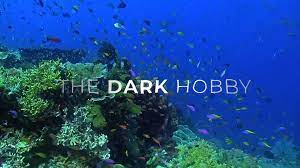
In this program we discussed a new film about the aquarium trade in Hawaii and around the world. The Dark Hobby is a beautiful and powerful film that will be released to the public May 22. We’ve had an opportunity to view it (twice).
First we spoke with Paula Fouce, who co-wrote, produced, and directed this film. She has numerous film credits and awards on topics ranging from historical gypsies to religious tolerance and has authored a book on religious conflict. She is President of Paradise Filmworks International.
Next we spoke with Jonathan Balcombe, who has written a book called What a Fish Knows and who figures prominently in The Dark Hobbyt. He has studied the behavior of many animals and insects and as an activist has worked with The Humane Society of the United States, Physicians Committee for Responsible Medicine, and People for the Ethical Treatment of Animals.
Finally, we spoke with Gail Grabowski of Chaminade University in Honolulu who has been active in the campaign to ban the aquarium trade. She has extensively researched the relationship between fish and the reefs.
The film will be released Saturday, May 22, and will be streaming on iTunes, AppleTV, You Tube, and other platforms. You can learn more and even host a screening at thedarkhobby.com
Listen to or download the interview: Click Here.
First we spoke with Paula Fouce, who co-wrote, produced, and directed this film. She has numerous film credits and awards on topics ranging from historical gypsies to religious tolerance and has authored a book on religious conflict. She is President of Paradise Filmworks International.
Next we spoke with Jonathan Balcombe, who has written a book called What a Fish Knows and who figures prominently in The Dark Hobbyt. He has studied the behavior of many animals and insects and as an activist has worked with The Humane Society of the United States, Physicians Committee for Responsible Medicine, and People for the Ethical Treatment of Animals.
Finally, we spoke with Gail Grabowski of Chaminade University in Honolulu who has been active in the campaign to ban the aquarium trade. She has extensively researched the relationship between fish and the reefs.
The film will be released Saturday, May 22, and will be streaming on iTunes, AppleTV, You Tube, and other platforms. You can learn more and even host a screening at thedarkhobby.com
Listen to or download the interview: Click Here.
THE DREAMT LAND
ECO 603 11 MAY 2021
A few months ago, Barbara Vlamis, frequent guest on this program and Executive Director of AquAlliance (“protecting northstate waters”), recommended that we read a book called The Dreamt Land, by Mark Arax. It is a history and commentary on water and agriculture in California, and we found it to be a page turner and a blood boiler. Since then, AquAlliance has also sponsored a book club about The Dreamt Land, and our questions on this program are based in part on the interests of that group. A journalist and author, Mark Arax stands out as a rarity: On one hand, he is a skilled investigative reporter who unearths secrets from the depths of shadow governments. On the other hand, he is a gifted writer whose feature stories and books are distinguished by the “poetry of his prose.”
Here are the questions we asked him. You can listen to or download the interview here.
--Please give us a little biography. You’re a native Californian, live and farm in Fresno, are a family man. How did you get where you are?
--How did you come to write The Dreamt Land? Many interviews, travel in dusty places, looking at pipes and leaks and even purloined water.
--Some topics for discussion (including some from the book club):
...Your article in California Sunday about the Paradise fire, linking it to longstanding problems with water and wildlands and rural/suburban sprawl. https://story.californiasunday.com/gone-paradise-fire/
...The history of water use and abuse going back to the 19th century. Owens Valley, the damming and sluicing of San Joaquin, private irrigation, water wars, competitive extraction.
...State and Federal water projects. Lots to discuss: origins, engineering, assumption that the government provides water.
...North versus Central versus South: northern water resources, agricultural needs and claims, urban uses. Agricultural uses (80%) vs. urban.
...Overpumping and subsidence (We’re starting to experience here in the North, modest compared to that in the Valley).
...Crop choice. Pistachios and walnuts (sent abroad).
...Engineering solutions to perceived problems. [We’ve interviewed Michael Heuseman, author of Technofix, who argues that we cannot expect “technofixes” for environmental problems. We’ve also read Elizabeth Kolbert’s White Sky, which says we may have to engineer our way out of engineered problems.]
...Big ag. Moneyed influence. Working around the regulations. Resnicks’ recent contributions to Newsom.
...The Delta and the now-single tunnel. The Brown legacy. The Newsom legacy.
...The current drought, implications if contractors receive only 5% of allocations.
...Junior and senior water rights, especially over-allocation.
... If you were the California Water Czar, what changes might you suggest? mandate?
Learn more about Mark at markarax.com.
Here are the questions we asked him. You can listen to or download the interview here.
--Please give us a little biography. You’re a native Californian, live and farm in Fresno, are a family man. How did you get where you are?
--How did you come to write The Dreamt Land? Many interviews, travel in dusty places, looking at pipes and leaks and even purloined water.
--Some topics for discussion (including some from the book club):
...Your article in California Sunday about the Paradise fire, linking it to longstanding problems with water and wildlands and rural/suburban sprawl. https://story.californiasunday.com/gone-paradise-fire/
...The history of water use and abuse going back to the 19th century. Owens Valley, the damming and sluicing of San Joaquin, private irrigation, water wars, competitive extraction.
...State and Federal water projects. Lots to discuss: origins, engineering, assumption that the government provides water.
...North versus Central versus South: northern water resources, agricultural needs and claims, urban uses. Agricultural uses (80%) vs. urban.
...Overpumping and subsidence (We’re starting to experience here in the North, modest compared to that in the Valley).
...Crop choice. Pistachios and walnuts (sent abroad).
...Engineering solutions to perceived problems. [We’ve interviewed Michael Heuseman, author of Technofix, who argues that we cannot expect “technofixes” for environmental problems. We’ve also read Elizabeth Kolbert’s White Sky, which says we may have to engineer our way out of engineered problems.]
...Big ag. Moneyed influence. Working around the regulations. Resnicks’ recent contributions to Newsom.
...The Delta and the now-single tunnel. The Brown legacy. The Newsom legacy.
...The current drought, implications if contractors receive only 5% of allocations.
...Junior and senior water rights, especially over-allocation.
... If you were the California Water Czar, what changes might you suggest? mandate?
Learn more about Mark at markarax.com.
UPDATE ON SUSTAINABILITY AND TECHNOLOGY
ECO 602 4 MAY 2021

This week we did one of our "rip and read" features with news clips from a variety of sources. The focus was on technology--not cure-all technofixes, but interesting new technologies (and a few older low technologies) that are offering better prospects for solar, wind, water purification, water supplies, and housing. Unfortunately, copyright matters prevent us from reprinting the script here. Do what we did: Google "innovations" in solar, water, etc. It's all there.
BUTTE ENVIRONMENTAL COUNCIL
ECO 601 27 APRIL 2021

On this program we talked with Caitlin Dalby, the General Manager of the Butte Environmental Council. She spoke with us about the complexities of managing BEC during the Covid-19 crisis and described recent and upcoming programs that are taking place despite Covid. Upcoming are the Endangered Species Faire and the Bicycle Music Festival. She also review ongoing programs such as RARE (the recycling project), Community Forums, Urban Forest Project, and the Oaks Restoration Program. Learn more about BEC, volunteer, or contribute at becnet.org.
Download or listen to this important interview: click here.
Download or listen to this important interview: click here.
clearing the air
eco 600 april 20, 2021
Our guest on this 6-Hundredth Ecotopia was Laura Gladson. She’s a PhD Candidate with Department of Environmental Medicine, New York University Grossman School of Medicine, and a Research Scholar, Marron Institute of Urban Management at NYU. Laura is also a Chico resident, whom we met via Zoom a few weeks ago at the get together of the Environmental Council of Butte County at the This Way to Sustainability Conference. Her research interests include air quality; health effects of air pollution; policy-driven research; translational research; and environmental justice. In this program she gave us a brief course in Pollution 101, described the methods used to measure air pollution, and discussed the impacts on the population, with particular emphasis on Environmental Justice. For additional information, check out healthoftheair.org. And listen to or download this excellent interview: Click here.
PARADISE RECOVERY
ECO 597 30 MARCH 2021
Our guests on this program were Marc Maddox and Katie Simmons. Marc is Paradise’s Public Works Director and Town Engineer, and Katie Simmons is the town’s Disaster Recovery Director. They spoke with us about the town’s Long Term Community Recovery Plan (schematic above) after the 2018 Camp Fire, including road repair and regeneration as well as plans to put utilities underground. Of particular interest was their explanation of the proposed sewer project, which would send Paradise sewage to the Chico plant via a pipeline. They discussed other options under consideration and explained why the Chico route may be the only possible one. They also explored funding options for this massive project.
Click here to listen or download.
Click here to listen or download.
Lose That Lawn!
eco 595 9 MARCH 2021
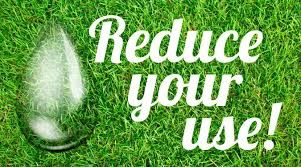
We recently read some essays about the environment printed in the Enterprise Record. These were written on topic of water conservation by 5th graders at Parkview Elementary School. We were very impressed by the writing and the students' insights. Their major concern was lawns, and they have lots of ideas on how we can eliminate grass and replace it with native plants, mulch, and compost. We spoke with Brayden Peacock,Kaitlyn Wassinger, Audrey Vu, Sean Kelley and their teacher Tammy Janos.
Listen to or download this excellent interview.
Listen to or download this excellent interview.
the affordable housing dilemma
eco 594 2 march 2021
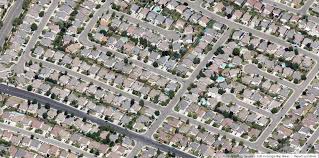
Chico Attorney Richard Harriman spoke candidly about the Chico affordable housing crisis and need need for affordable infill rather than suburban developments for the affluent. He lamented the lack of community input for the revision of the Chico general plan housing element and argued that the community wants more diversity and more affordable housing while developers, who have a loud voice, ignore community needs and cater to the wealthy who are fleeing the big cities and seeking more affordable McMansions. If Chico keeps going this way, he warned, "It's going to look just like Stockton." See image above.
Listen to or download the program.
Listen to or download the program.
BI0CHAR
ECO 593 24 FEBRUARY 2021
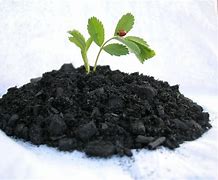
We had two guests on this program. Josie Strong is a farmer (principally walnuts) in East Biggs, California, and Richard Roth is a sustainable agriculture practitioner from Chapmantown, Chico, CA. They told us about the value of biochar--a kind of charcoal produced under low oxygen, smouldering, so to speak--and how it can sequester carbon, improve soil moisture content, and generally reduce C02 pollution. Each has experimented with ways in which the backyard gardener and the farmer can produce biochar from "homemade" furnaces and even trenches in the ground. They suggested that the uses and benefits of biochar are just beginning to be explored and encouraged listeners to join the biochar revolution.
Listen to or download the program: Click here.
Listen to or download the program: Click here.
the URBAN FOREST
ECO 591 9 FEBRUARY 2021
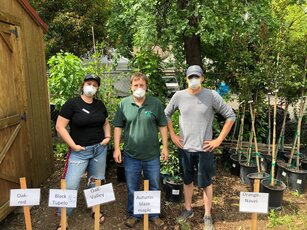
We talked about trees this week, specifically about Chico’s Urban Forest and more generally about the value of trees in the worlds of the environment and poetry. First we spoke with Gianna Anselmo, Urban Forest Coordinator for the Butte Environmental Council. She told us about BEC’s plan to plant 700 trees in Chico’s neighborhoods, working with volunteers and homeowners to plant trees well adapted to our environment. You can learn more at becnet.org. We also rounded out the program with some fun facts and poetry about trees. Didja know that some trees have been to the moon?
Listen to or download the program: Click here.
Listen to or download the program: Click here.
FUNGI RULE THE WORLD
ECO 590 2 February 2021

Our guest was Cheetah Tchudi--yes, our son--who is a farmer, rancher, and mycologist working out of TurkeyTail Farm in Yankee Hill. He spoke with us about the role fungi play in the world, the varieties around the world, how to avoid poison mushrooms, some fun facts, and his mushroom bioremediation projects cleaning up after the 2018 Camp Fire.]
Learn more about his work at butteremediation.com
Listen to or download the show: Click here.
Learn more about his work at butteremediation.com
Listen to or download the show: Click here.
CLIMATE GIRLS CHANGING OUR WORLD
ECO 587 19 JANUARY 2021

KZFR programmer and polymath Gayle Kimball, author of over twenty books, spoke with us about her newest book, Climate Girls Changing Our World. She interviewed 54 young women in seven continents and found a vigorous, inspired, inspiring and dedicated climate activists. We asked her about how climate change issues vary in such areas as Africa, Asia, Europe, and North America and how these young people are acting on them. She also shared her view of what these climate activists have in common, including family birth order, motivation, commitment, and career ambitions. Listen to or download this interview: Click here.
LET IT SNOW!
ec0 586 12 january 2021
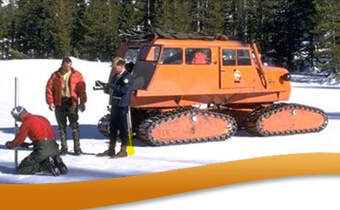
This program focused on the Sierra Nevada snowpack, which supplies about one-third of California’s water and serves as a vast winter reservoir. We spoke with Sean de Gusman of the Department of Water Resources. He is chief of DWR’s Snow Supply and Water Forecasting Section and is responsible for measuring the Sierra snowpack and figuring out how much water it contains. We asked him how he measures the snowpack. He told us about the extraordinarily complex process that involves physical, on-the-scene measurements at Phillips Station in the Sierra, 120 electronic sensing sites, airplane and satellite determinations, and more. At the close of the program, we read excerpts from a Wikipedia article on the great flood of 1862, when above average snowpack coupled with spring rains turned the Sacramento valley into a vast lake. Read the press release that sparked this interview: https://water.ca.gov/News/News-Releases/2020/Dec-20/December-2020-Snow-Survey See the actual data at cdec.water.ca.gov. Listen to or download the interview: Click here.
GOOD ENVIRONMENTAL NEWS FROM 2020 FOR 2021
ECO 585 5 JANUARY 2021

Often on this program we bring you some discouraging words about the environment, though generally with some concrete solutions. Although 2020 was a pretty terrible year on many fronts, there was, in fact, some positive news on the environmental front and in this program, we offered good news from around the world. We don’t want to minimize the crisis. According to the World Wildlife Foundation, “Humanity has wiped out 60% of mammals, birds, fish and reptiles since 1970, leading the world’s foremost experts to warn that the annihilation of wildlife is now an emergency that threatens civilization.” While that statistic is chilling and heartbreaking, there are some good news stories, and we provided some from here in the US, from Canada, from around the world on topics ranging from preserving Marmots and Tasmanian Devils to solar cars and how reading labels can save the earth.
Click here to download or listen to the program
Click here to download or listen to the program


